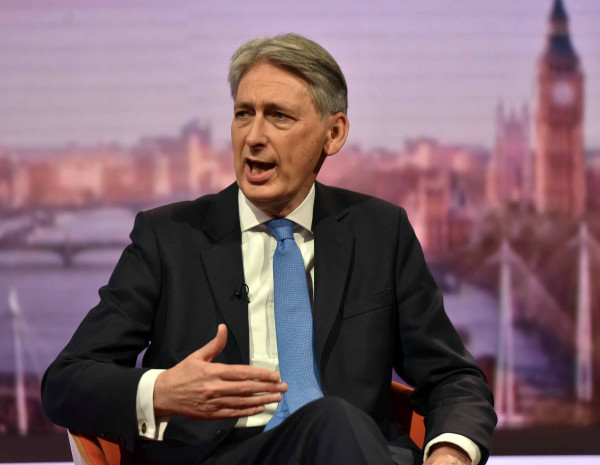

Earlier this month, Royal London predicted a decrease of up to 25 per cent in the top threshold for tax-relief pension contributions - dropping from £40,000 to possibly £30,000.
There is also, according to the insurer, likely to be a reduction to the threshold of the annual allowance taper, decreasing from a current £150,000 to £125,000.
Pensions have been the go-to source for the government wanting to release funds for other expenses, possibly because, as Mr Hammond alluded to while speaking on a trip to Bali, "tax breaks are eye-wateringly expensive".
Another reason is the drive to stop incentivising pensioners to leave their pots untouched and use it as a means for tax-free inheritance.
It is understandable that, due to the planned additional £20.5bn funding plugged into the NHS, stagnant public sector wages and lack of Universal Credit, cuts have to be made somewhere.
Pensions then, stand out as the 'easier' option compared to attempting to raise other taxes such as VAT or income tax.
However, as there have been six separate cuts to the annual and lifetime allowance alone since 2010, this Budget could be the next step on a downward spiral for retirement.
If this is indeed the outcome later today, what does this mean for our ageing demographic and prolonged retirement?
Downward spiral of tax-incentive reductions
Implementing a salami-slicing approach to pension tax relief creates an increasingly confusing exercise for individuals saving for retirement.
For advisers who have to keep up with policy changes as part of their day-to-day job, constant changes mean having to second guess the next move, which may prevent them from focusing on a long-term approach to retirement planning.
For individual savers, further cuts in tax relief could prevent them from saving at all. The fewer incentives available for pension saving, the less attractive they become, which could coerce a reduction in contributions and spur an epidemic of poor pensioners living out their retirement.
If individuals still decide to save for their future, they make look to pension alternatives. While this is, on the whole, better than no savings, it may lead to an influx of investment in unsuitable products to compensate the tax-incentive shortfall - for example, savers who are approaching retirement could turn to riskier funds which put their capital at risk.
Both are concerning to me, considering the current environment of high market volatility combined with prolonged retirement needs.
The government and financial services industry should be pushing for increased savings and protection of capital; not the complete opposite. It has been said a few times, but the need for quality financial advice is more prevalent than ever before.
Navigating the pitfalls
When taking a driving test, if the car behind you increases your risk by 'tailgating', you are advised to increase the gap between you and the car in front to mitigate the risk from the other side.
You can keep driving at the same speed, but your chances of crashing due to unforeseen halts are kept to a minimum.
This is how pension savings should be viewed.
When a pensions environment of riskier choices creeps up on us, advisers need to pull their clients back slightly and increase their upfront protection, to maintain the pace of return, while mitigating the risk of a personal financial crash.
Luckily, there are funds out there right now that provide this additional protection without hampering returns.
Whatever the government decision today (October 29), the uncertainty surrounding the future of pensions should be a reminder for financial advisers to engage with their clients and talk about their current level of contributions.
Transparent and effective communication is critical, particularly as we enter the final stage of the bull market with a whole generation approaching retirement age.
If relevant, a reassessment of financial needs and options may be required.
Finally, perhaps the most important takeaway here is that capital protection will be key to ensuring a sustainable pension income, to create a happy and healthy later life for all.
Mark Evans is business development director at Tavistock Investments
Click here and join us at 3pm today for our live coverage of Budget 2018 - you can read all the big announcements here first and put your questions to our panel of experts.
Marcus Brookes, head of multi-manager at Schroders, David Inglesfield, head of wealth at KW Wealth, and Andrew Gilbert, head of retirement at LV, will be on hand to answer questions and make sense of Mr Hammond's announcements for financial advisers.



